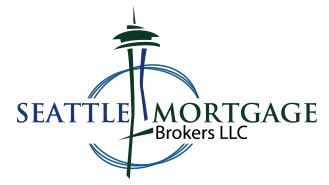We're In A Buyers Market Lower mortgage rates haven’t caused an uptick in demand just…
Escrow: What It Is And Why You Need It
Closing: How Much Do You Need For Escrow?
One of the biggest costs you’ll find out about when closing on a new home purchase is the “escrow account.” You’re probably not too excited about contributing to this fund, because you probably have no idea what it’s for. While this may feel like an unnecessary charge (especially when you are writing the check), escrow is actually just a way to prepay costs associated with owning a home.
Why Do Lenders Require Escrows Or Impounds?
The idea behind an escrow fund is to protect both the borrower and the lender. How? Everyone knows that a home can be foreclosed if the mortgage is not paid. But a home can also be foreclosed for other reasons, like not paying your property taxes.
With an escrow account, the lender has the money in hand to pay these costs on YOUR behalf. It’s a way of guaranteeing that you won’t be late on your property tax payments. The escrow account can also benefit you. Once established, the account balance is maintained by regular monthly contributions from you, added into your mortgage payment.
If you didn’t have an escrow account, you would probably be paying hundreds or thousands of dollars to the county a few times per year. That’s not easy to budget for.
Its the same for homeowners insurance. Your insurance agent only requires a payment once per year, but it can be a large sum when the time comes. If you didn’t budget for it, your insurance coverage lapses and you won’t be compensated if your home is damaged or destroyed. You mortgage company wouldn’t bee to happy about it either, since they lost the collateral on the money they gave you, and they’re gonna want it back at some point.
How Do Escrow Accounts Work?
Escrow accounts hold money collected in advance. When property taxes or insurance premiums are due, the lender pays those “for you.” Of course, the lender doesn’t actually come up with the money. They simply make the payment from funds they’ve already collected in the escrow account. Annual reconciliation of the escrow account
Annual Reconciliation Of The Escrow Account
Once a year, the lender provides an escrow account statement to you. It must also refund excess money collected. If the escrow balance is insufficient to cover your costs (maybe your taxes or insurance premiums have increased), the lender can require you to make up any shortage. Usually, you get to choose between paying a lump sum, or making up the shortage during the next year by paying a higher monthly escrow fee. Under federal rules, a lender can collect enough escrow funds to cover your annual bills, plus two monthly payments, plus $50.
Mortgage Closing and Escrow
If you buy a home with a 20% or more down payment, the lender may (not always, but its possible) waive the requirement to have an escrow account. The lender might require you to put your loan on an auto pay or impose a fee to waive escrow.
This means you’d pay your own property taxes, homeowners insurance, and other fees as they become due.
So a borrower with a big down payment can avoid monthly escrow payments. However, the obligation to pay taxes and insurance remains. Many borrowers who make big down payments still want an escrow account, because it’s an easy way to budget costs and assure that basic bills are paid. Plus, the lender doesn’t charge a monthly fee or “skim off the top” to make the payments for you. One hundred percent of the money you pay into the escrow account must go toward your taxes, insurance, or other fees you would pay anyway.
Risking Foreclosure And Other Problems
What happens if you don’t have an escrow account and fail to pay taxes or homeowners insurance? In the case of taxes, you could be facing foreclosure. The county could take your property from you. If you don’t pay for property insurance, the lender will probably purchase a replacement policy for its own protection. This coverage is called “force-placed insurance,” and it’s not a good thing. Because the lender is picking the replacement insurance, it does not have an obligation to select the cheapest or best coverage. Force-placed insurance can be very expensive, in some cases two-to-ten times the cost of typical policies. How can you avoid force-placed insurance? Get an escrow account.
*This article does not represent legal interpretation or advice. This is not a commitment to make a loan. Loans are subject to borrower qualifications, including income, property evaluation, sufficient equity in the home to meet LTV requirements, and final credit approval. Approvals are subject to underwriting guidelines, interest rates, and program guidelines, and are subject to change without notice based on applicant’s eligibility and market conditions. Refinancing an existing loan may result in total finance charges being higher over life of loan. Reduction in payments may reflect longer loan term. Terms of the loan may be subject to payment of points and fees by the applicant. Seattle Mortgage Brokers, LLC NMLS: LO# 305371/1598279 | MB# 761615

